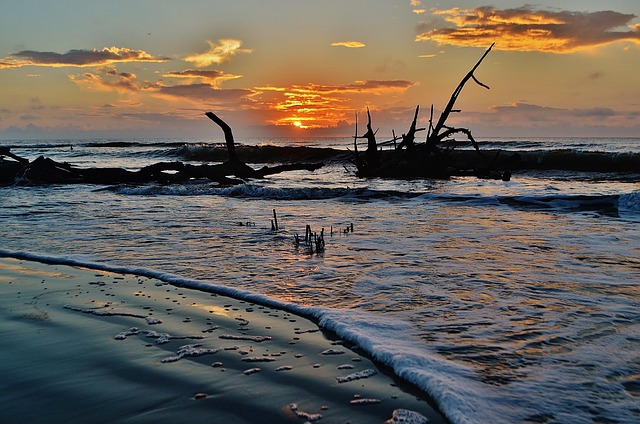Stricter hazing abuse law firms in South Carolina and Rhode Island are crucial in tackling campus hazing and sexual assault cases, which have seen a disturbing rise nationwide. These specialized firms represent victims, provide legal recourse, and hold perpetrators accountable, while also emphasizing the importance of education and policy implementation to prevent such incidents. By building strong client relationships and leveraging expert knowledge, these law firms offer holistic support, ensuring positive outcomes for victims and deterring future hazing activities.
In recent years, cases of hazing and sexual assault on college campuses have garnered significant attention, especially with high-profile incidents at Rhode Island universities. This article explores the representation and legal aspects surrounding these sensitive issues, focusing on Rhode Island’s hazing laws and their impact. We delve into the complexities of campus sexual assault cases, present a detailed case study, offer strategies for effective legal representation, and discuss preventive measures to address these challenging topics, providing valuable insights for South Carolina law firms specializing in hazing abuse cases.
Understanding Rhode Island's Hazing Laws and Their Impact

In Rhode Island, hazing is taken very seriously due to stringent laws aimed at protecting students from this harmful behavior. The state’s hazing laws, often enforced by experienced hazing abuse law firms, are designed to prevent and punish any actions that create a substantial risk of physical or psychological harm. These laws cover a wide range of activities, from physical assaults to emotional manipulations, especially within the context of student organizations.
The impact of these laws is significant in deterring hazing incidents and offering legal recourse for victims. By holding perpetrators accountable, Rhode Island’s legislative measures send a clear message that hazing abuse will not be tolerated. This strong stance has likely contributed to raising awareness about the dangers of hazing and encouraging students to speak up against such practices, fostering a safer environment in colleges and universities across the state.
The Complexities of Sexual Assault Cases on Campus

Sexual assault cases on college campuses present unique challenges due to their sensitive nature and the often complex dynamics involved. In the context of hazing, these cases become even more intricate. When alleged incidents occur within social organizations or athletic teams, it’s not just a matter of criminal charges but also involves institutional accountability, potential civil liabilities, and the emotional well-being of survivors.
In South Carolina, as in many states, hazing abuse law firms play a crucial role in navigating these complexities. They specialize in representing victims, ensuring their rights are protected, and seeking justice. These cases demand careful handling to preserve evidence, interview witnesses, and understand the institutional response—all while supporting clients through an incredibly difficult process.
A Deep Dive into the University Hazing and Assault Case

In recent years, a disturbing trend has emerged on college campuses across the nation, with hazing rituals taking a dark turn. The Rhode Island university hazing and sexual assault case is a stark reminder of the dangers lurking behind closed doors. When fraternity members allegedly subjected new recruits to non-consensual acts and extreme humiliation, it sparked a national conversation about the need for stricter hazing abuse laws. South Carolina, among other states, has seen similar incidents leading to legal action against these organizations.
This case highlights the complex interplay between campus traditions, peer pressure, and the potential for severe legal repercussions. Many students enter college with an unspoken understanding of certain rituals, but when these activities cross the line into assault or harassment, it becomes a matter of public safety and legal accountability. The involvement of leading hazing abuse law firms in South Carolina and beyond underscores the seriousness with which these incidents are now being treated.
Strategies for Effective Representation and Support

In representing clients involved in Rhode Island university hazing and sexual assault cases, law firms specializing in hazing abuse in South Carolina employ several effective strategies. Firstly, they prioritize building a strong rapport with clients, ensuring they feel heard and supported throughout the legal process. This empathetic approach fosters trust, encouraging victims to share crucial details that may strengthen their cases.
Secondly, these law firms leverage extensive knowledge of state and federal laws related to hazing and sexual assault to develop robust legal strategies. They also collaborate closely with relevant experts, such as medical professionals and psychological counselors, to gather comprehensive evidence and provide holistic support to clients. Such a multi-faceted approach enhances the effectiveness of representation and increases the likelihood of positive outcomes for victims.
Preventive Measures: Preparing for Future Challenges in College Campuses

With the ongoing struggle against hazing and sexual assault on college campuses, Rhode Island’s recent case serves as a stark reminder of the need for proactive measures. Preventive education is key to addressing these issues. Universities must equip students with knowledge about consent, healthy relationships, and the potential dangers of hazing. Regular workshops, seminars, and interactive sessions can foster an environment where students recognize and report any form of abuse, be it physical or sexual.
Moreover, South Carolina’s legal framework plays a crucial role in deterring hazing activities. Law firms specializing in hazing abuse can provide guidance on policy implementation and offer support when dealing with sensitive cases. By combining educational initiatives with robust legal protections, college campuses can better prepare for potential challenges and create a safer environment for all students.





